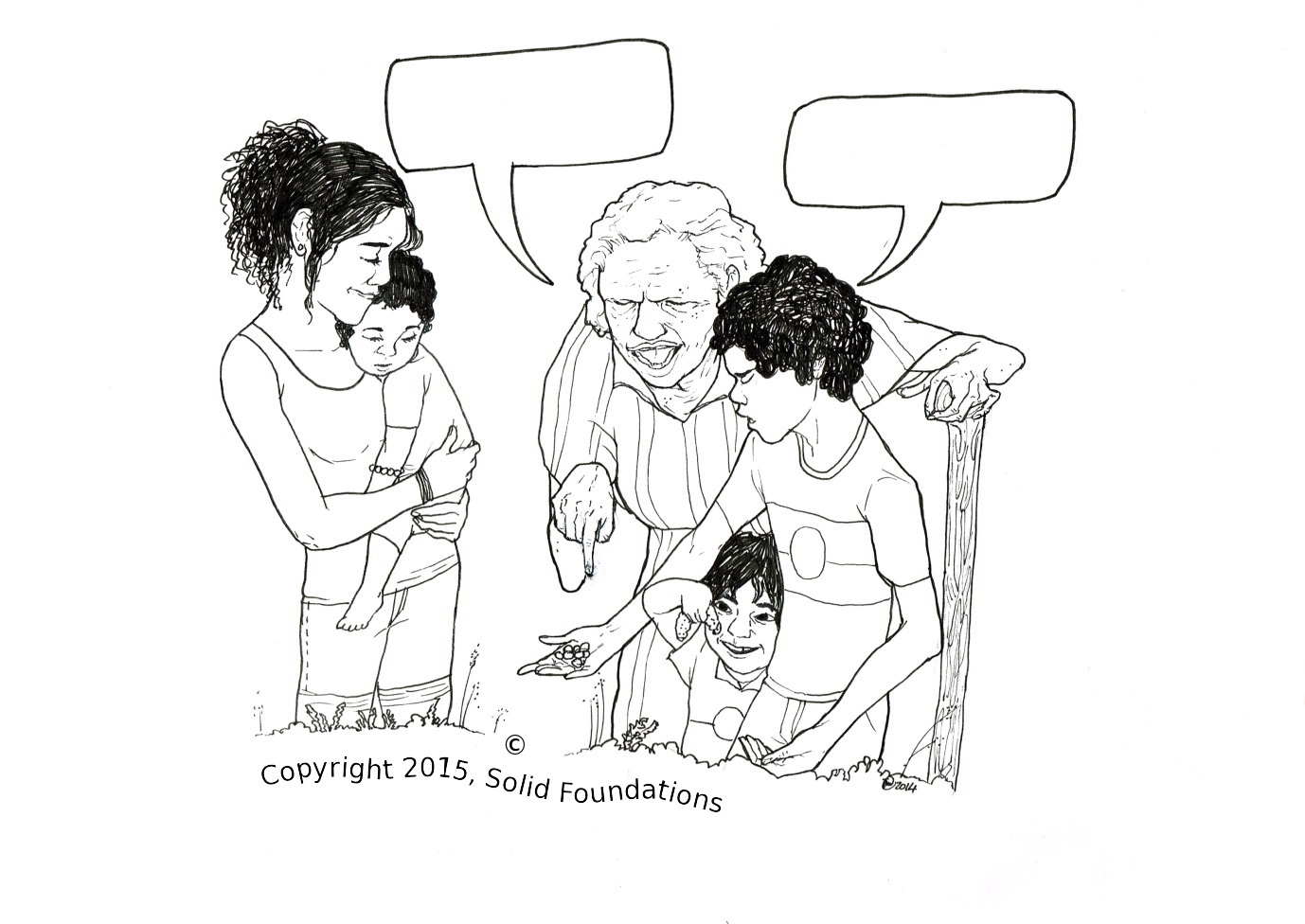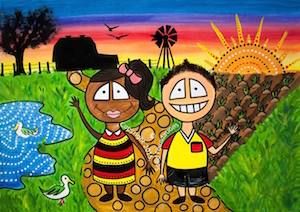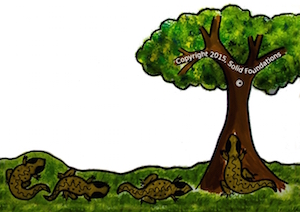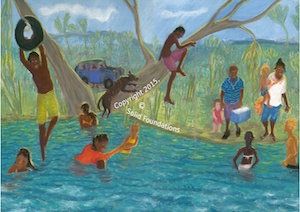Introduction to the SF Assessment Series

The Solid Foundations (SF) Assessment Series is a set of three assessment packages that have been specifically designed for use by speech pathologists with Australian Aboriginal English (AE) speaking First Peoples children. The Emergent Literacy Assessment Package is also available for teachers and psychologists to use in their work with First Peoples children.
The SF Assessment Series has been created by Dr Judy Gould and is based on the experiences and knowledge gained by Dr Gould while working with First Peoples living in a range of remote, rural and urban settings across Australia for over 20 years.
Research conducted within Australia (Gould, 1999; Gould, 2008; Pearce & Williams, 2013) has demonstrated the unreliability and limited application of current mainstream Australian speech pathology assessment methodologies and materials when applied to the assessment of the communication skills of Aboriginal English speaking First Peoples children. The SF Assessment Series has been developed from a strengths-based approach: Aboriginal English is valued as an important Australian language and inherent in the design of these assessment tools is the philosophy that speaking Aboriginal English is a strength for First Peoples children and one which must be nurtured and supported across all aspects of the child’s life, including formal education. For the purpose of creating these assessment tools, the term Aboriginal English has been used to describe the unique ways in which First Peoples exchange information (ways of communicating) as well as the phonological, semantic, syntactic and morphological features of the language.
Being a non-Indigenous speech pathologist, the author stresses the importance of working closely with Australia’s First Peoples when utilising these assessment tools in order to obtain the most valuable information and assessment results.
The SF Assessment Series is a set of culturally-safe and linguistically-appropriate assessment materials that have been designed based on current research evidence regarding how to safely and effectively examine and support communication development for First Peoples children. The SF Assessment Series draws on the experiences of the author assessing the communication skills of and providing ongoing support for First Peoples children speaking Standard Australian English as a second variety over a number of years. Hence, rather than attempt to standardise the administration and scoring of these assessment tools with First Peoples children, the author has focused on the importance of recognising and valuing the diversity present among First Peoples speakers of English and provides instead direction and guidance regarding the use of these tools as valuable qualitative measures of a First Peoples child’s communicative competence. In addition, due to the qualitative design of the SF Assessment Series, the assessor is able to apply these assessment tools with children of any age for which the particular tool is deemed to be appropriate.
The author demonstrates how a rigorous qualitative analysis of a First Peoples child’s communication skills is able to:
- identify areas of communication skill development strength and difficulty, when present, in the First Peoples child’s home language;
- inform subsequent support for individual children, when needed;
- provide parents, educators and health professionals with evidence of communication difference versus communication impairment for bidialectal First Peoples children;
- inform decisions regarding applying for State and Territory funding for programs designed to support children with disabilities;
- provide information regarding a First Peoples child’s development of Standard Australian English as either their additional home language or as an additional dialect.
In addition, numerical scores are able to be obtained for three out of the four assessment sections (non-word assessment, receptive language assessment and phonological awareness assessment). These number descriptions provide the assessor with the opportunity to obtain their own understanding over repeated assessments regarding how these numerical scores can contribute towards gaining further understanding of how First Peoples children living within a particular speech community perform on the SF Assessment Series tasks. Once sufficient numerical data are obtained, this then provides individual speech pathologists with the ability to conduct their own descriptive statistical analyses, hence, creating normative information pertinent to the children residing within a particular speech community. The SF Assessment Series manual describes how the author has been able to use the numerical data to inform diagnostic and intervention processes for individual children living within different Aboriginal English speech communities.
The SF Assessment Series represents a way forward in the field of speech pathology assessment for First Peoples children. These assessment tools reflect the theoretical perspective that communication occurs within cultural, social and political contexts. This Series reflects the importance of creating assessment tools which reflect not only the linguistic aspects relevant to Aboriginal English speakers but which also acknowledge the how, when and why children communicate as an equally important consideration in designing assessment tools for use with bidialectal and/or bilingual children. Examining a child’s total communication system requires the examiner to construct communication settings which best reflect the bidialectal and/or bilingual child’s range of communication experiences. Most importantly, a child’s communicative competence in all of their languages, not only Standard Australian English, needs to be examined. The SF Assessment Series has been specifically constructed to follow Aboriginal English ways of communicating as well as accounting for the linguistic features of Aboriginal English in order to achieve this aim. Most importantly, the data obtained provide the examiner with sufficient information to conduct analyses of a child’s competence in both Aboriginal English and Standard Australian English.
References
Gould J., (1999) An evaluation of assessment instruments in the measurement of the spoken communication skills of rural Aboriginal children, MA sub-thesis, Australian National University.
Gould J., (2008) Non-standard assessment practices in the evaluation of communication in Australian Aboriginal children. Clin. Linguist Phon.; 2008 Aug; 22(8), 643-657.
Pearce W.M., Williams C., (2013) The cultural appropriateness and diagnostic usefulness of standardized language assessments for Indigenous Australian children. Int. J. Speech Lang. Pathol.; 2013 Aug; 15(4), 429-440.
Products in the SF Assessment Series
Click on any of the above images or links to view details of the products shown or simply view all of the products together in the SF Assessment Series area of our shop.




